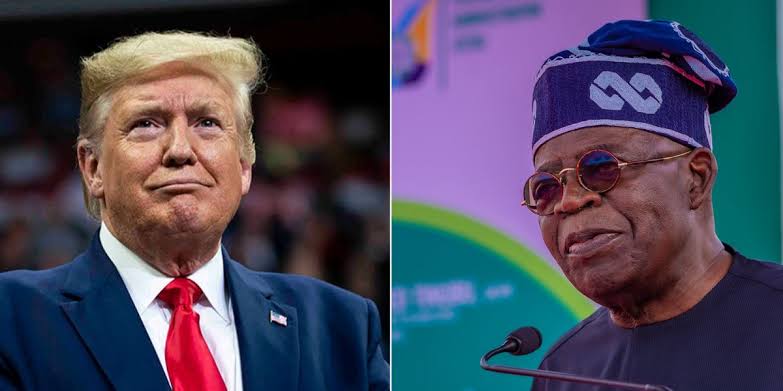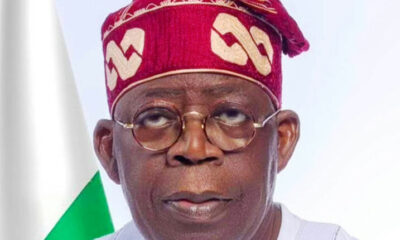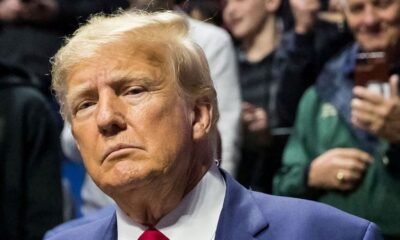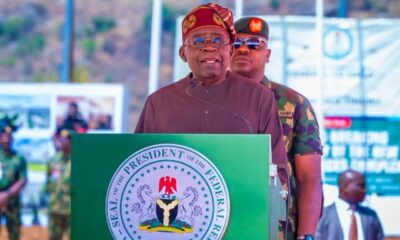The Nation
Nigeria’s 2025 Budget faces risks as Trump’s Energy Policy threatens oil prices

As Nigeria pushes forward with its N54.9 trillion 2025 budget, concerns are growing over how former U.S. President Donald Trump’s energy policies might impact the country’s economic stability.
Experts warn that Trump’s commitment to ramping up oil production under his “Drill Baby Drill” policy could lower global crude oil prices, jeopardizing Nigeria’s $75 per barrel benchmark.
Trump’s Energy Strategy and Its Potential Impact
Trump has announced plans to boost fossil fuel investment and increase U.S. oil output to meet domestic energy needs. Analysts predict this could lead to an oversupply of oil, reducing global prices and directly affecting Nigeria’s revenue from crude exports.
Dr. Muda Yusuf, Director/CEO of the Centre for the Promotion of Private Enterprise (CPPE), stated that Trump’s policy poses significant risks to Nigeria’s economy. He explained, “The U.S. has been the world’s largest oil producer for the past six years, contributing 22% of global production. If Trump increases output, it will likely weaken crude oil prices, making it difficult for Nigeria to maintain its $75 per barrel benchmark for the 2025 budget.”
Yusuf also noted that Trump’s administration is focused on reducing energy prices in the U.S. and globally, which could lower Nigeria’s foreign exchange earnings and government revenue. Additionally, Trump’s decision to withdraw from the Paris Climate Accord could accelerate fossil fuel investments, further depressing oil prices.
Threats to Nigeria’s Economy
Experts warn that a drop in oil prices could increase Nigeria’s budget deficit, forcing the government to either borrow more, cut spending, or print more money—any of which could lead to economic instability. Clifford Egbomeade, a financial analyst, stressed that “if oil prices fall below $75 per barrel, Nigeria’s economy will face severe financial strain, leading to higher inflation, weaker foreign reserves, and a devaluation of the naira.”
Diaspora remittances could also be affected, as Trump’s strict immigration policies might impact the earnings of Nigerians living in the U.S. The Nigerian diaspora contributes significantly to the country’s forex inflow, and any reduction in remittances could further weaken the naira.
Diverging Opinions on Trump’s Influence
While some experts foresee major economic risks, others argue that Trump’s impact is being exaggerated. Dele Oye, President of the Nigerian Association of Chambers of Commerce, Industry, Mines, and Agriculture (NACCIMA), dismissed concerns, saying, “This Trump effect is being over-dramatized.”
Similarly, petroleum economist Prof. Wumi Iledare argued that the U.S. has already reached peak oil production and lacks the capacity for a significant output increase in the short term. He stated, “Crude oil prices are determined by demand and supply fundamentals, not just U.S. policy. It is in America’s interest to avoid a price crash.”
The Way Forward for Nigeria
To mitigate these risks, experts urge Nigeria to reduce its dependence on oil by diversifying its economy. Egbomeade emphasized that “the only sustainable path forward is to increase local production in agriculture, manufacturing, and services to provide alternative revenue sources.”
David Adonri, Vice Executive Chairman of Highcap Securities, added that eliminating petroleum imports and securing agricultural investments from insecurity could help cushion the impact of lower oil prices on inflation.
As Nigeria navigates these uncertainties, policymakers will need to adopt proactive strategies to safeguard the economy from external shocks caused by global oil market fluctuations.






























